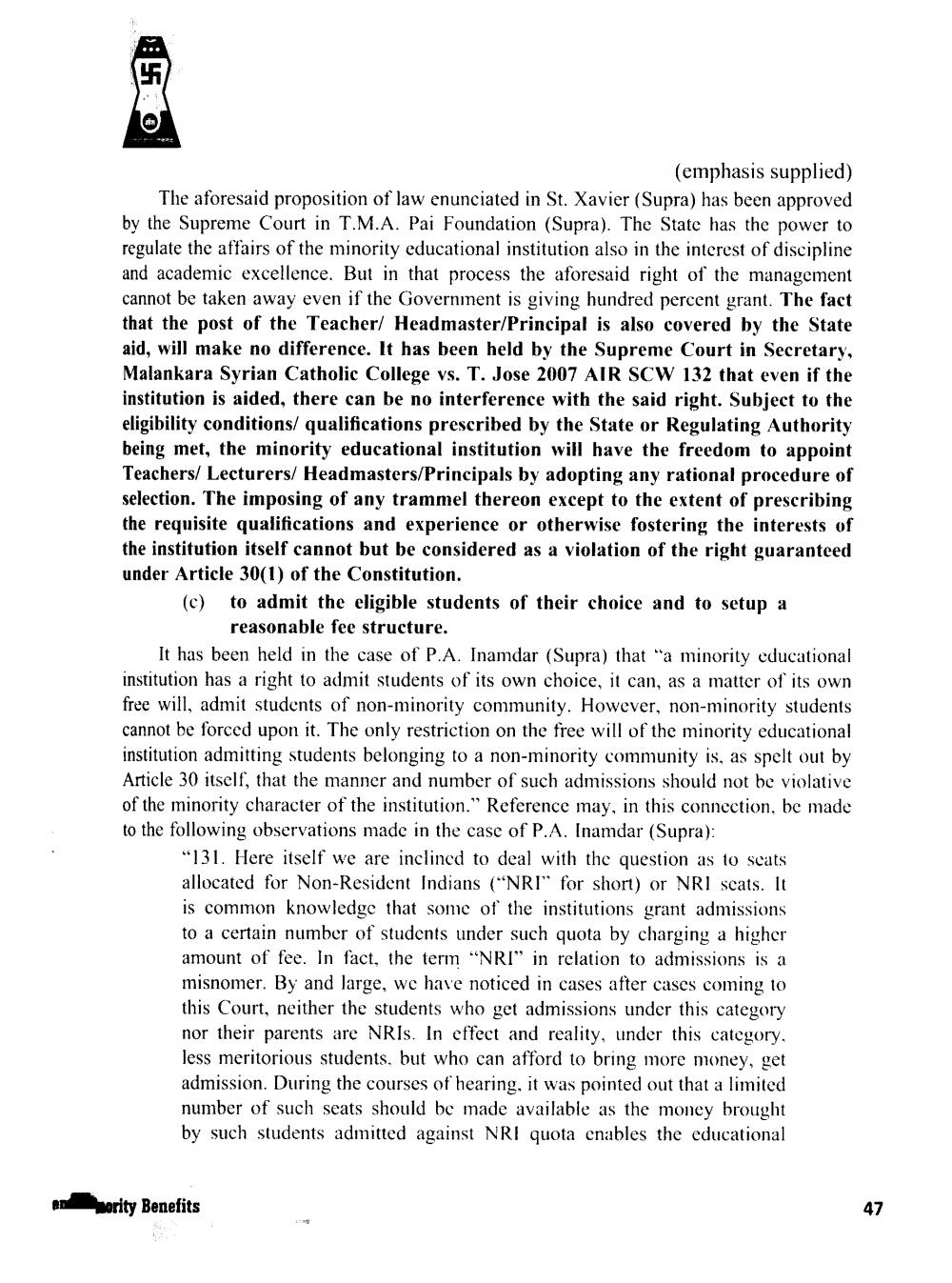________________
:
55
o
(emphasis supplied) The aforesaid proposition of law enunciated in St. Xavier (Supra) has been approved by the Supreme Court in T.M.A. Pai Foundation (Supra). The State has the power to regulate the affairs of the minority educational institution also in the interest of discipline and academic excellence. But in that process the aforesaid right of the management cannot be taken away even if the Government is giving hundred percent grant. The fact that the post of the Teacher/ Headmaster/Principal is also covered by the State aid, will make no difference. It has been held by the Supreme Court in Secretary, Malankara Syrian Catholic College vs. T. Jose 2007 AIR SCW 132 that even if the institution is aided, there can be no interference with the said right. Subject to the eligibility conditions/ qualifications prescribed by the State or Regulating Authority being met, the minority educational institution will have the freedom to appoint Teachers/ Lecturers/ Headmasters/Principals by adopting any rational procedure of selection. The imposing of any trammel thereon except to the extent of prescribing the requisite qualifications and experience or otherwise fostering the interests of the institution itself cannot but be considered as a violation of the right guaranteed under Article 30(1) of the Constitution.
(c) to admit the eligible students of their choice and to setup a
reasonable fee structure. It has been held in the case of P.A. Inamdar (Supra) that “a minority educational institution has a right to admit students of its own choice, it can, as a matter of its own free will, admit students of non-minority community. However, non-minority students cannot be forced upon it. The only restriction on the free will of the minority educational institution admitting students belonging to a non-minority community is, as spelt out by Article 30 itself, that the manner and number of such admissions should not be violative of the minority character of the institution." Reference may, in this connection, be made to the following observations made in the case of P.A. Inamdar (Supra):
"131. Here itself we are inclined to deal with the question as to seats allocated for Non-Resident Indians ("NRI" for short) or NRI scats. It is common knowledge that some of the institutions grant admissions to a certain number of students under such quota by charging a higher amount of fee. In fact, the term “NRI" in relation to admissions is a misnomer. By and large, we have noticed in cases after cases coming 10 this Court, neither the students who get admissions under this category nor their parents are NRIs. In effect and reality, under this category, less meritorious students, but who can afford to bring more money, get admission. During the courses of hearing, it was pointed out that a limited number of such seats should be made available as the money brought by such students admitted against NRI quota enables the educational
An
o rity Benefits




